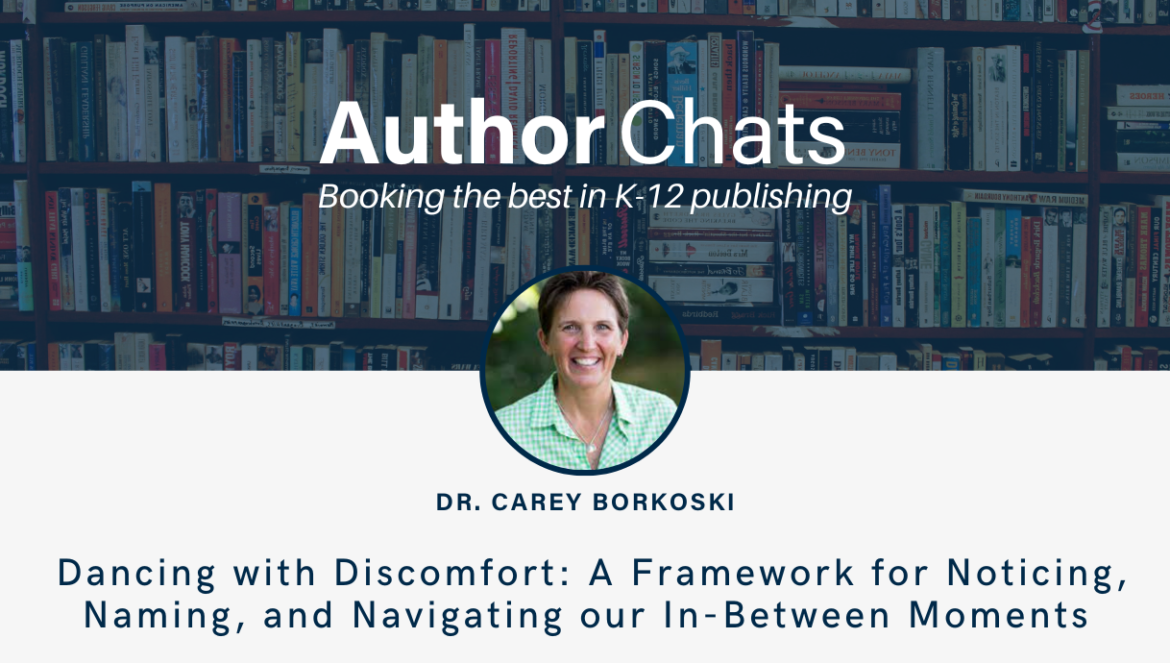In this compelling episode of Author Chats, Dr. Carey Borkoski, Associate Professor and Interim Director of the EdD Program at Johns Hopkins University School of Education, discusses her new book Dancing with Discomfort (John Catt Educational).
In the book, she explores the universal transitions we all go through in our lives (both planned and unexpected), which cause uncertainty, anxiety, and other feelings of discomfort. There is often a tendency to avoid or hurry through periods of adjustment (such as getting a new job, graduating, or even getting married) when there is so much to gain by embracing and learning from the discomfort.
In all these moments, individuals, groups, and organizations experience doubt and worry associated with changes. By recognizing, naming, and attending to the transitions, Dr. Borkoski demonstrates how one can proactively control the transitions. Her extensive work on cultivating belonging in communities is an important contributing factor to the process she proposes for successfully understanding and navigating transitions, as well. Most people enter a new environment feeling like they are the only one experiencing the anxiety when in reality it is a common and normal experience.
“Part of the book bubbled out of teaching a diverse group of students,” says Dr. Borkoski. “What I noticed is that we all show up in new spaces, in particular academia, with a well-formed identity of who you are and what you can do – your raison d’etre. You wonder to yourself, am I the only one who feels terrified or nervous?”
When students begin to understand the universality of their experience, there is often a collective sigh of relief that they are all going through it together.
“It’s a beautiful mess,” she explains in the navigation of self-confidence. “What we often forget is that we’ve been successful in other areas that have been noted. I ask them to look at what worked in another space that they can bring into a new space.”
“This book is meant to be a reminder to notice and name the discomfort because that is the moment you should be leveraging,” Dr. Borkoski continues. “Right at that moment, the learning that can happen is amazing.”
In addition to her book, you can learn more about Dr. Borkoski’s work around cultivating belonging through storytelling and inclusion from her podcast, Tell Me This.
As you listen to the interview think through the following questions to determine how you are “dancing” with the discomfort of entering new environments you are experiencing:
1. When navigating a change, how do you check in with yourself to reflect on emotions you are experiencing? Are you focusing on the internal work that can set you up to better navigate transitions?
2. Do you embrace the idea that internal work can be done collectively and find benefit from a collaborative understanding of what others are experiencing?
3. Dr. Borkoski suggests, “If everyone in the world could show up with a little more curiosity, what a difference we could make in our conversations and the way we show up.” How do you respond to the idea of bringing more curiosity into your process?
4. Gratitude is an essential part of the process of a professional journey according to Dr. Borkoski. Are you taking the time to enjoy, celebrate and embrace the steps in between the final outcome that you are pursuing? Even in the most difficult of situations?
Listen to more episodes of Author Chats.





